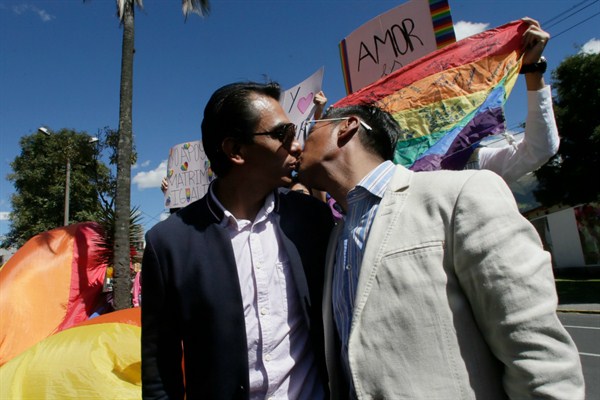Ecuador’s highest court ruled last month that the country’s prohibition on same-sex marriage was unconstitutional. The 5-4 verdict was a victory for LGBT activists in the heavily Catholic country, but it is not immediately clear that the decision will be accepted among all segments of Ecuadorian society, according to Amy Lind, the Mary Ellen Heintz Professor of Women’s, Gender and Sexuality Studies at the University of Cincinnati. In an email interview with WPR, she explains how Ecuador’s Constitutional Court reached its decision and why the benefits of this ruling may only immediately be felt by the most “privileged” same-sex couples in Ecuador.
World Politics Review: How did this decision by Ecuador’s Constitutional Court come about, and what will its impact be for Ecuador’s LGBT community?
Amy Lind: Article 67 of Ecuador’s constitution, which has been in place since 2008, states that “marriage is the union between a man and a woman,” while Article 68 states that “the stable and monogamous union between two persons without any other marriage ties” will have the same rights as a married couple, except the right to adopt.

